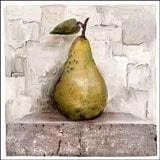
|
NO STRANGER TO THE SKIESGlassSymphonic Prog3.24 | 20 ratings |
From Progarchives.com, the ultimate progressive rock music website
 Atavachron
like
Atavachron
like
Special Collaborator Honorary Collaborator |
 Glass were a woefully unsung - or perhaps I should say unknown - group of heroes that made a go of
it after seeing Soft Machine open for Hendrix in Seattle, 1968. They'd been the cover band Outcasts
earlier that decade when Greg and Jeff Sherman [keys & bass/guitars] drafted drummer Jerry Cook but
intrigued with the liberties taken by British art bands, they began focusing entirely on original
work. After many trials and tribulations, nothing was ever issued until finally in 1999 old tapes
were retrieved and mastered for release in 2001 on their own Relentless Pursuit label, saving yet
another important prog band from oblivion and securing this trio's impressive accomplishments for
the record book.
Glass were a woefully unsung - or perhaps I should say unknown - group of heroes that made a go of
it after seeing Soft Machine open for Hendrix in Seattle, 1968. They'd been the cover band Outcasts
earlier that decade when Greg and Jeff Sherman [keys & bass/guitars] drafted drummer Jerry Cook but
intrigued with the liberties taken by British art bands, they began focusing entirely on original
work. After many trials and tribulations, nothing was ever issued until finally in 1999 old tapes
were retrieved and mastered for release in 2001 on their own Relentless Pursuit label, saving yet
another important prog band from oblivion and securing this trio's impressive accomplishments for
the record book. No Stranger to the Skies is a 2 CD set of handpicked numbers from their heyday in the mid '70s, disc one from the studio and disc two a semi-live collection. The retrospective starts with a tingle and a jazz riff from Greg Sherman's electric piano doubled by mellotron washes that build in concentric circles around the rhythm core, the group taking its time with development punctuated by deliberate changes of direction. Limits in the production are evident but not much more than the early Greenslade recordings and this 9-minute opener makes up for any aural flaws with impressive theme extension. 'Give the Man a Hand' establishes a less developed jazz-fusion approach reaching a grand piano solo from Sherman, and 'Domino' is the essence of gradual as it sneaks through a web of twined keys showing the Softs' influence and a general fondness for the Canterbury sounds of National Health, Gilgamesh and even Quiet Sun. 'The Myopic Stream' is Aaron Copland meets a fusion ensemble and 12-minute 'For Ursula Major and Sirius the Dog Star' is a bit disjointed but comes together with rashers of synths and piano strewn together. Disc two features the half-hour 'Broken Ears' suite which if you can get through the almost imperceptible opening five minutes blossoms into an escapade of hot symphonic jazz that twists down a road of bass, mellotron, synths and drums, faux Elizabethan play, slow-moving acoustic guitar ramblings and general strangeness. 'Changer' follows, a satisfying keyboard/bass/drums bit that brings to mind Mike Oldfield's early stuff, and 'Patrice Mersaults Dream' is twelve minutes of exactly that. Somewhat underdeveloped for what they were trying to do but with huge untapped possibilities, Glass was clearly on the right track and was just a bit too late on the scene to have the time to evolve professionally (and probably would have done better in Europe had they released a proper record). Further, there are passages here that may make you drowsy or even check your email and for that there is little excuse. But overall the reemergence of Glass as a significant U.S. prog band is gladly received, the unearthed work small but historically relevant, and their appearances at modern Prog music events welcome.
Atavachron |
3/5 |
MEMBERS LOGIN ZONEAs a registered member (register here if not), you can post rating/reviews (& edit later), comments reviews and submit new albums. You are not logged, please complete authentication before continuing (use forum credentials). Social review commentsReview related links |

 |
| 